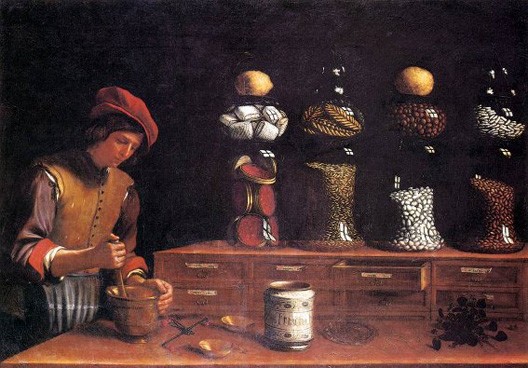The spice route
From pepper to cinnamon, passion awaits
“God made the food, the devil the seasoning . ” If we look at the history of spices, this culinary formula of James Joyce seems quite well founded: since ancient Egypt, men have in fact continued to alternate diplomacy and violence to succeed in getting their hands on the famous spices.
Coming from faraway countries and therefore rare, expensive but also mysterious, these easy-to-transport plants quickly became the symbol of an essential luxury. Let us retrace the history of this first globalization which brought in its flavored wake the greatest powers, suddenly eager for small spicy dishes.Isabelle Gregor

Did you say “spices” ?
Before 1150, there was no “spice” in the French language, but “aromatics” from Greek and already present in the Bible. It was therefore not until the Middle Ages that this word derived from the Latin species imposed itself, designating all special foodstuffs.

Among these, do not be surprised to find luxury products and drugs sold in pharmacies! Then the meaning is reduced to designate “aromatic substances taken from certain plants (bark, roots, leaves, flowers, pods, seeds, fruits, originating in India, tropical Africa, America. used as condiments to enhance the flavor of dishes, to flavor drinks or activate the functions of the stomach. ” ( Great Encyclopedia ). It is therefore not strange to find among these products in medieval times rice or even rice. cane sugar, the famous “reed honey” .
Very expensive, spices have long served as a bargaining chip, to the point of being at the origin of our expression “pay in cash” ! They ended up giving their name to a tax, as the article in L’Encyclopédie by Diderot and d’Alembert likes to recall :
“SPICES, (Jurisprud.) Are monetary rights that judges of several courts are authorized to receive from parties for trial viewing in writing. These kinds of remuneration are called in law sportulae or species, which signifioit all kinds of fruits in general, & especially spices; from which we made spices in French, a term which formerly included all kinds of jams, because before the discovery of the Indies, and that we had the use of sugar, we made fruit jam with spices ; one made presents to the judges of these kinds of fruits, which gave them the name of spices ” .
It is of course for the author the occasion not to speak about cooking, but taxes and power of the judges.
First victims of fever
Myrrh trees planted on a terrace of the great temple of Deir el-Bahari: here is one of the most beautiful symbols of the importance assumed by spices in the history of great civilizations! It is to a stubborn woman, Pharaoh Hatshepsout , that we owe it since it was she who organized one of the first great expeditions to the Land of Punt (southern Arabia or the Somali coast).

It is true that Egypt could not ignore this treasure: placed in the heart of the Mediterranean world, this country serves as a hub for productions and buyers. All in the Nile Valley!

An essential crossroads for lovers of spicy products, we get our supplies on one side from the Somali “Spice Coast” and Happy Arabia (Yemen), and on the other from the markets of Mesopotamia, which are themselves supplied. by camel caravans from the Indus regions.
Cotton, oils and spices against Mediterranean coral and Baltic amber, business is going well! From the banquets of Sardanapalus to the luggage of the Queen of Sheba visiting Solomon’s , spices are all the rage!
Subsequently the Cretans and then the Greeks, until then little known for their culinary talents, succumb in their turn: it must be said that Alexander’s soldiers made a great promotion of cinnamon and other sesame.

